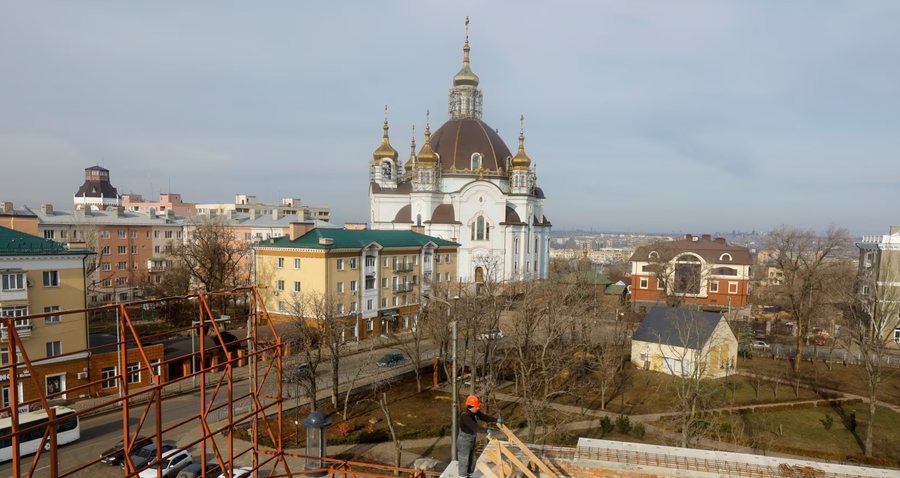
About 20% of Ukraine's territory, including thousands of villages and towns, is under Russian control. Life has changed dramatically for many Ukrainians since Russia's attack, and some places - such as the city of Bakhmut, Chasiv Yar and Vovchansk - have been almost completely destroyed. Voice of America correspondent Kateryna Besedina reports on how some Ukrainians are coping with this upheaval in their lives.
The city of Mariupol, with half a million inhabitants, was destroyed three years ago by Russian forces and remains occupied, A2 reports.
Yevhen Tuzov lived in Mariupol before the war, where he was a sportsman and a well-known public figure in the coastal city.
"Mariupol was a beautiful city. Now only ruins remain...", he says.
Ukrainian President Volodymyr Zelensky says his government has not given up on Mariupol. In his New Year's address to the nation, he said: "We do not give up what is ours. And... we do not forget our people. Those who are in captivity. And we will fight for every person who is unfortunately there."
Mr. Tuzov no longer lives in Mariupol. He now lives about 300 kilometers northwest, in Dnipro, but maintains contact with Ukrainians living in the occupied area.
He says the Russians have already started building in Mariupol, and parts of the city have become construction sites. Local homes have been replaced by luxury apartment complexes that are being put up for sale. As can be seen from videos posted on social media, some residents feel evicted.
"Our houses have been demolished and in their place apartments are being built that will be sold. For three years now we have been living in rentals, or in dormitories and shelters. There are tens of thousands like us," says a woman in a video.
"The houses on the left bank are close to the sea. It's a beautiful area that some people want to take for themselves, to build apartments and sell them. And we'll end up on the street!" says a resident.
Mr. Tuzov says many newly arrived Russians are buying cheap property on the coast.
"Because for Russians who come from, let's say, Moscow or St. Petersburg, the prices are insanely cheap... But they should keep in mind that the former owner is buried in the courtyard of the building," says Mr. Tuzov.
Russian forces also occupied the city of Melitopol in the Zaporizhia region early in the offensive on Ukraine. Since then, residents have lived in constant fear, says former resident Olha Leontieva.
"Those who stayed during the aggression thought they would be liberated soon... When I talk to some of them now, they still have hope and faith, but they are afraid to talk about it - they know that many phones are tapped... They are very afraid!", she says.
Ukrainians in occupied cities have been forced to obtain Russian passports, without which people cannot receive medical assistance or buy medicine at pharmacies.
"I know a woman who is very sick, she survived cancer... She called me crying and told me that she had to get a Russian passport because the doctors wouldn't give her medical care...", says Ms. Leontieva.
Schools are forcibly Russifying students to remove their Ukrainian identity, says Tsvetelina van Benthem, a researcher and lawyer specializing in armed conflicts at the University of Oxford.
"We see that the education system is being used as a weapon against Ukrainian identity in the occupied territories. Ukrainian books are being destroyed and replaced with Russian ones; teachers are being intimidated," she says.
However, some Ukrainians are staying in the occupied cities, hoping for a cessation of fighting and an end to the Russian occupation. / Voice of America (A2 Televizion)











